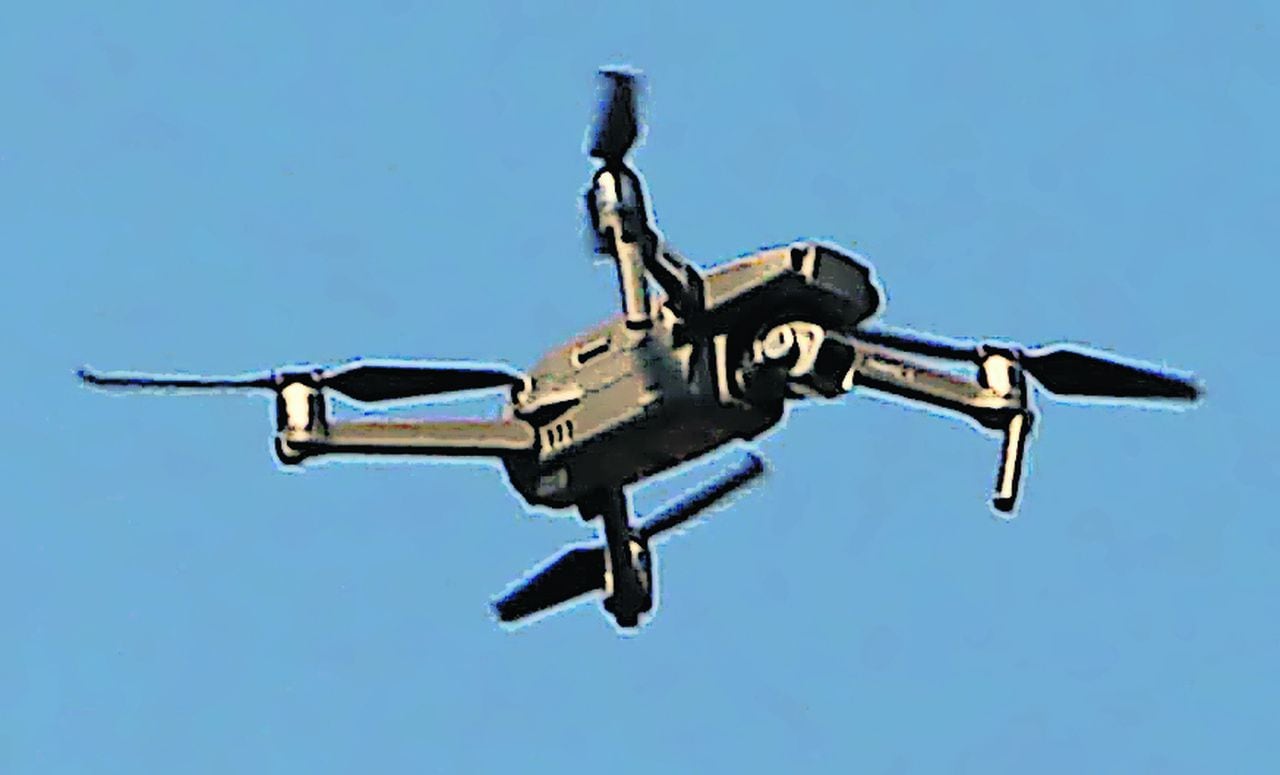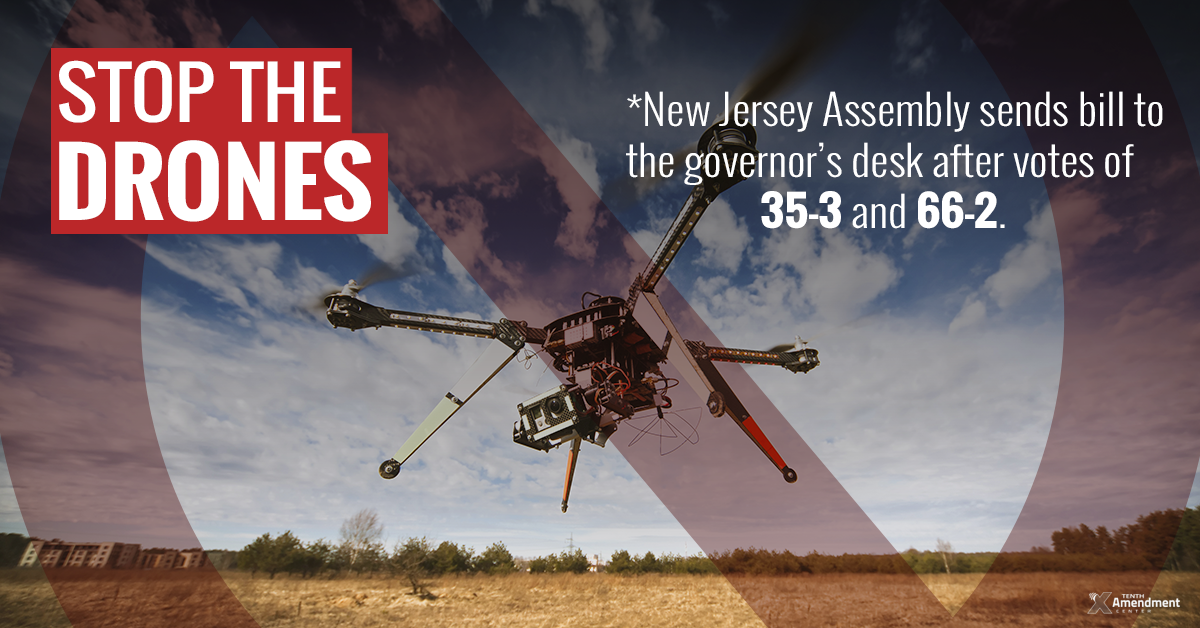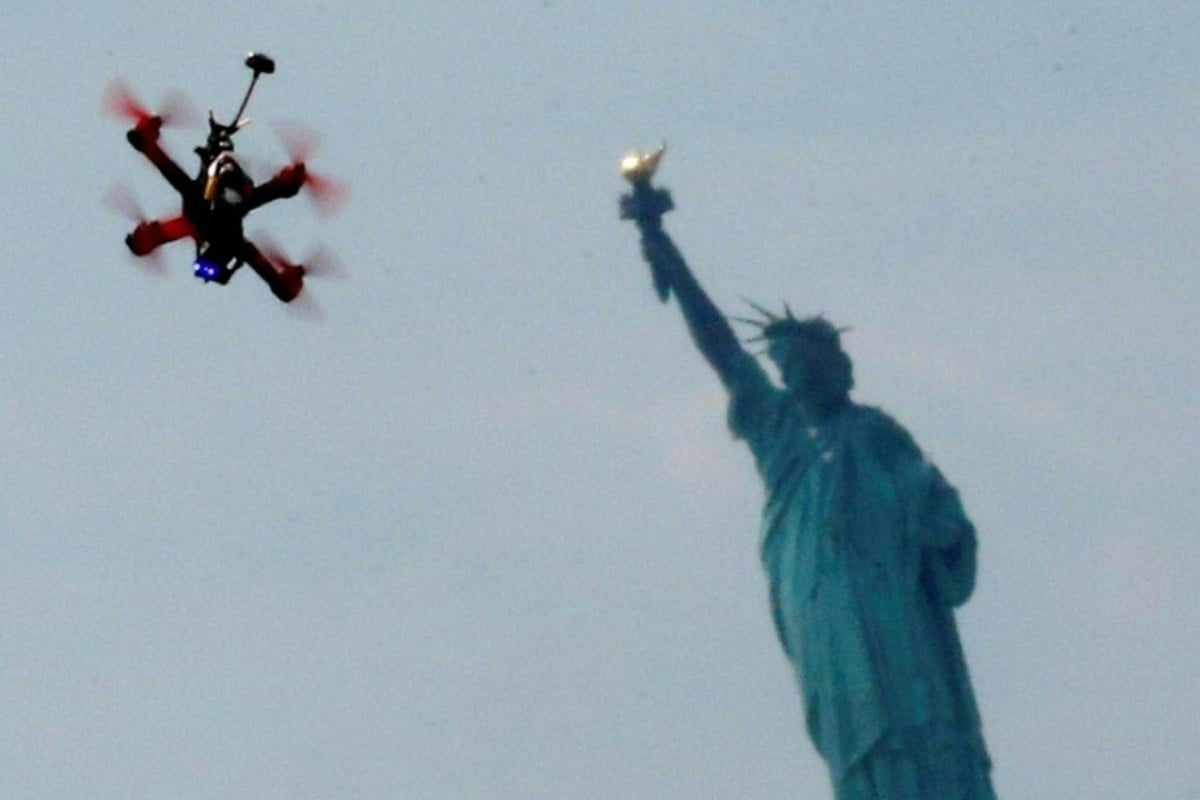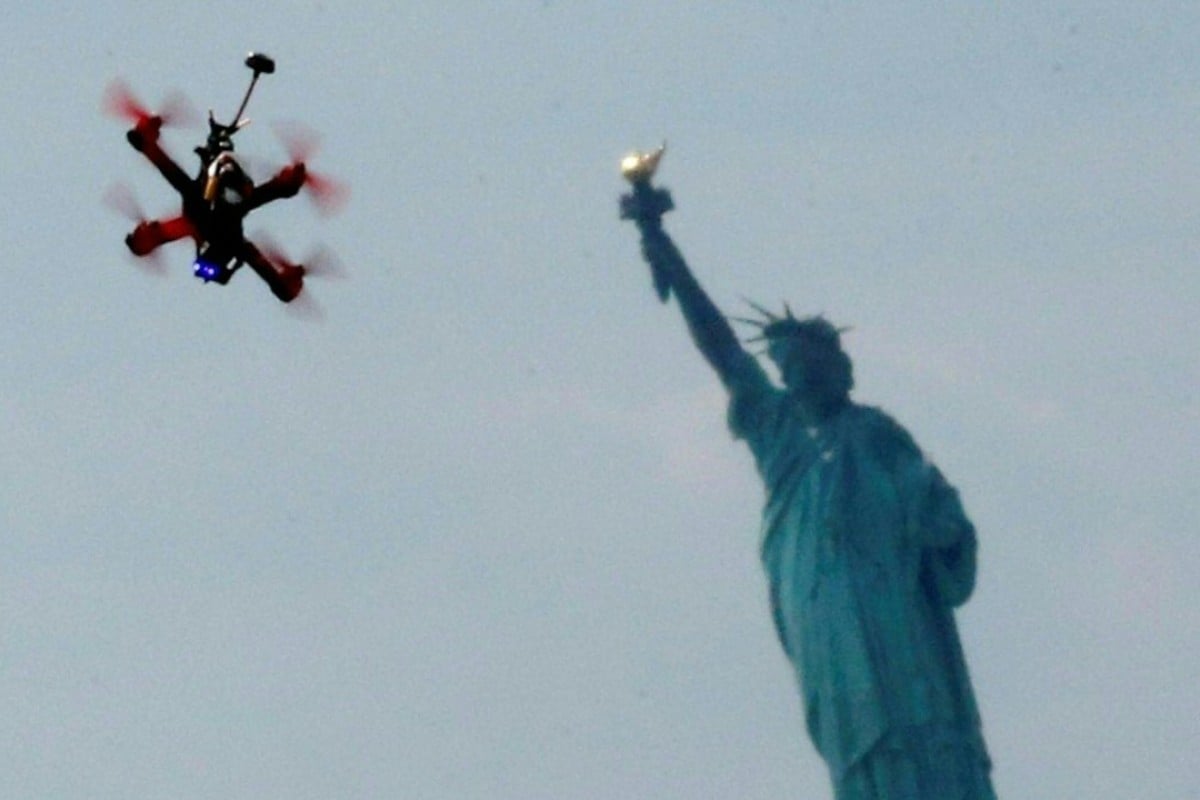Drones Over New Jersey Solved explores the complex interplay between burgeoning drone technology, evolving legislation, and public safety concerns within the Garden State. This examination delves into recent incidents, highlighting successful investigations and the innovative technologies employed to track and apprehend violators. We will analyze the legal landscape governing drone operation in New Jersey, comparing it to neighboring states and exploring the potential consequences of unlawful drone use.
Furthermore, we’ll discuss the crucial role of law enforcement in maintaining public safety in the face of this rapidly advancing technology.
The increasing prevalence of drones necessitates a comprehensive understanding of their potential impact, both positive and negative. This investigation aims to provide a balanced perspective, examining both the risks associated with irresponsible drone operation and the beneficial applications of this technology in areas such as search and rescue and emergency response. By analyzing specific case studies and exploring technological advancements in drone detection, we hope to shed light on the effective strategies employed to maintain order and safety in the airspace above New Jersey.
Legal Ramifications of Drone Use in New Jersey: Drones Over New Jersey Solved
New Jersey’s drone laws, like those in many states, aim to balance the innovative potential of drone technology with the need to protect public safety and privacy. Understanding these regulations is crucial for both recreational and commercial drone operators to avoid legal repercussions.
New Jersey State Laws Regarding Drone Operation

New Jersey’s drone regulations largely align with federal FAA rules, prohibiting drone flights over 400 feet, near airports without authorization, and at night without proper lighting. Specific state laws address issues like privacy violations, focusing on unauthorized surveillance and recording of individuals without consent. Additionally, regulations exist regarding the operation of drones in sensitive areas such as prisons and military installations.
Penalties for Violating Drone Regulations in New Jersey
Penalties for violating New Jersey’s drone laws range from fines to criminal charges, depending on the severity of the offense. Minor infractions, such as exceeding altitude limits, might result in warnings or relatively small fines. However, more serious violations, such as unauthorized surveillance or reckless operation causing property damage or injury, can lead to substantial fines and even jail time.
The specific penalties are determined on a case-by-case basis, considering factors such as intent and the consequences of the violation.
Comparison of New Jersey Drone Laws with Neighboring States
New Jersey’s drone laws are generally consistent with those of neighboring states like New York, Pennsylvania, and Delaware. All these states adhere to the federal FAA regulations, and most have specific state laws addressing privacy concerns and unauthorized drone operation near critical infrastructure. However, there might be subtle differences in specific penalties or permitted exceptions. For instance, one state might have stricter regulations regarding drone operation near schools or hospitals than another.
Hypothetical Scenario Involving Illegal Drone Use and Potential Legal Consequences
Imagine a scenario where a drone operator flies a drone equipped with a high-resolution camera over a private residence without the owner’s consent, recording activities within the property. This constitutes a clear violation of privacy laws in New Jersey. The consequences could include hefty fines, a civil lawsuit from the homeowner for invasion of privacy, and potential criminal charges depending on the content of the recording and the operator’s intent.
The operator could also face FAA penalties for violating federal airspace regulations.
Common Drone-Related Incidents in New Jersey
Several categories of drone-related incidents have been reported in New Jersey, highlighting the diverse challenges posed by this technology. These incidents often involve violations of privacy, trespassing, and unsafe operation.
Examples of Solved Drone Incidents in New Jersey
While specific details of solved drone incidents are often kept confidential for investigative reasons, examples include drones used for illegal surveillance, drones causing near misses with aircraft, and drones flown recklessly in populated areas. Methods used to identify perpetrators often involve analyzing drone flight data, reviewing video footage, and using witness accounts.
Categorization of Drone-Related Violations
Drone-related violations in New Jersey can be broadly categorized as follows:
- Privacy violations: Unauthorized recording of individuals without consent.
- Trespassing: Operation of drones on private property without permission.
- Unsafe operation: Reckless or negligent operation causing potential harm or damage.
- Airspace violations: Flying drones near airports or other restricted airspace without authorization.
Summary Table of Drone Incidents, Drones over new jersey solved
Due to confidentiality concerns surrounding ongoing investigations and the sensitive nature of the data, a detailed table summarizing specific incidents cannot be provided. However, the table below illustrates the potential types of information that may be included in such a summary if publicly available.
| Date | Location | Type of Violation | Resolution |
|---|---|---|---|
| Example Date | Example Location | Privacy Violation | Fine and community service |
| Example Date | Example Location | Unsafe Operation | Drone confiscation |
| Example Date | Example Location | Airspace Violation | Warning |
Technological Aspects of Drone Detection and Tracking
Law enforcement agencies in New Jersey employ various technologies to detect and track drones, constantly adapting to the evolving capabilities of drone technology. However, limitations exist, and ongoing research focuses on improving detection and identification methods.
The recent drone activity over New Jersey appears to be resolved, though the specifics remain under investigation. For those interested in high-quality drone technology, the capabilities of the black falcon 4k drone canada are quite impressive. This leads us back to the New Jersey situation; hopefully, future incidents will be prevented with improved surveillance technology.
Drone Detection Technologies Used by Law Enforcement
Technologies currently used include radar systems, radio frequency (RF) detectors, acoustic sensors, and even visual observation. Radar systems can detect the physical presence of drones, while RF detectors identify the radio signals used for drone control. Acoustic sensors detect the sound of drone propellers, and visual observation, particularly with the aid of high-powered binoculars or cameras, can be effective in locating drones, especially in low-altitude scenarios.
Limitations of Current Drone Detection Technologies
Current technologies have limitations. Radar systems can be affected by weather conditions and may struggle to distinguish drones from birds or other flying objects. RF detectors can be overwhelmed by the large number of radio signals in urban environments, and acoustic sensors are limited by distance and background noise. The effectiveness of visual observation is also highly dependent on weather conditions and the operator’s skill.
Comparison of Drone Detection Methods
Each method has advantages and disadvantages. Radar offers long-range detection but suffers from false positives. RF detection is more precise but has limited range. Acoustic sensors are relatively inexpensive but are easily affected by environmental noise. Visual observation is reliable but requires trained personnel and favorable conditions.
A multi-sensor approach, integrating multiple technologies, often provides the most comprehensive detection capabilities.
Potential Future Advancements in Drone Detection and Tracking
Future advancements may include the use of artificial intelligence (AI) to improve the accuracy of drone identification and tracking, more sophisticated signal processing techniques to filter out background noise and interference, and the development of counter-drone systems capable of intercepting or disabling malicious drones. The integration of various sensor data through advanced data fusion algorithms is also a key area of ongoing research.
Public Safety and Drone Operations in New Jersey
The increasing use of drones presents both risks and opportunities for public safety in New Jersey. Responsible operation is key to mitigating risks and harnessing the benefits of this technology for emergency response and other public safety initiatives.
Potential Risks Posed by Drones to Public Safety
Drones, if operated irresponsibly, can pose significant risks. Collisions with aircraft, interference with emergency services, and privacy violations are some of the key concerns. Improperly operated drones can also cause property damage or even injury to individuals.
Use of Drones to Enhance Public Safety
Drones offer significant potential for enhancing public safety. They can be used for search and rescue operations, providing aerial views of disaster areas, monitoring traffic flow, and assisting in law enforcement activities. In emergency situations, drones can provide real-time situational awareness, enabling faster and more effective response.
Best Practices for Responsible Drone Operation in Populated Areas
Responsible drone operation involves adhering to all applicable federal and state regulations, maintaining visual line of sight, avoiding flight over crowds, and being aware of the surrounding environment. Operators should also be mindful of privacy concerns and obtain necessary permissions before flying over private property.
Effective Communication and Collaboration Between Drone Operators and Law Enforcement
Effective communication and collaboration between drone operators and law enforcement are essential for ensuring public safety. Drone operators should be aware of local regulations and law enforcement procedures, and law enforcement agencies should have clear protocols for dealing with drone-related incidents. This collaboration can prevent accidents and improve response times in emergency situations.
The Role of Law Enforcement in Addressing Drone-Related Issues

Various law enforcement agencies in New Jersey play a role in handling drone-related incidents, each with specific responsibilities and resources. Effective training and resource allocation are critical to addressing the challenges posed by this technology.
Roles of Different Law Enforcement Agencies
Local police departments handle most initial drone-related incidents, while state police may be involved in larger-scale investigations or incidents involving multiple jurisdictions. Federal agencies, such as the FAA, play a significant role in enforcing airspace regulations and investigating incidents that affect national airspace.
Training and Resources for Law Enforcement Officers

Law enforcement agencies are increasingly providing training to officers on drone detection, identification, and response procedures. This training includes understanding drone technology, recognizing airspace violations, and employing appropriate legal and tactical responses. Resources may include specialized equipment, such as drone detectors and counter-drone systems.
Challenges Faced by Law Enforcement
Law enforcement faces challenges in addressing drone-related issues, including the rapid evolution of drone technology, the difficulty of detecting and tracking small drones, and the complexities of enforcing regulations across various jurisdictions. The need for specialized training and equipment further adds to the challenges.
Strategies for Improving Law Enforcement Response
Law enforcement can improve their response to drone-related incidents through several strategies:
- Increased training and education for officers on drone technology and regulations.
- Investment in advanced drone detection and tracking technologies.
- Improved inter-agency coordination and communication.
- Development of clear protocols and procedures for handling drone-related incidents.
- Public awareness campaigns to educate the public about responsible drone operation.
Illustrative Case Studies of Solved Drone Incidents
Detailed descriptions of specific solved drone incidents are generally not publicly released due to the sensitivity of the information involved and ongoing investigations. However, the following provides generalized examples of how such investigations might unfold.
Case Study 1: A Privacy Violation
In a hypothetical scenario, a drone was used to record activities inside a private residence. The investigation involved obtaining a warrant to access drone flight data and video footage. Analysis of the flight path and video content confirmed the violation. The operator was identified through registration information and faced fines and potential civil litigation.
The recent drone activity over New Jersey, thankfully, appears to be resolved. Understanding the regulations surrounding drone operation is crucial, however, and obtaining the necessary permits is essential; for those operating in Canada, checking the requirements for a transport canada drone license is a good first step. This ensures safe and legal drone operation, mirroring the responsible practices needed to prevent similar incidents in New Jersey and elsewhere.
Case Study 2: A Technological Challenge
Another hypothetical case involved a drone that was used to smuggle contraband into a correctional facility. The investigation relied heavily on technological analysis of the drone’s communication signals and flight patterns to identify the operator and the method used to control the drone. The unique challenge was overcoming sophisticated signal jamming techniques used by the operator. Advanced signal processing techniques and collaboration between various law enforcement agencies were crucial in solving this case.
In conclusion, the issue of drones over New Jersey, while presenting challenges, has also spurred advancements in technology and law enforcement strategies. The successful resolution of numerous incidents demonstrates the effectiveness of collaborative efforts between law enforcement agencies, technological innovation, and responsible drone operation. Looking ahead, continued collaboration and the development of more sophisticated detection technologies are crucial to ensuring the safe and responsible integration of drones into New Jersey’s airspace.
The future of drone regulation hinges on a proactive approach that balances technological progress with the need to protect public safety and privacy.
Top FAQs
What are the most common types of drone violations in New Jersey?
Common violations include operating drones without proper registration, flying in restricted airspace (near airports or critical infrastructure), violating privacy laws by recording individuals without consent, and reckless operation causing endangerment.
What is the maximum penalty for illegal drone operation in New Jersey?
Penalties vary depending on the severity of the violation but can include substantial fines, imprisonment, and the confiscation of the drone.
How can I report a suspected illegal drone activity?
Contact your local law enforcement agency or the Federal Aviation Administration (FAA).
Are there any specific drone insurance requirements in New Jersey?
While not mandated by state law, obtaining liability insurance is strongly recommended to cover potential damages or injuries caused by drone operation.
